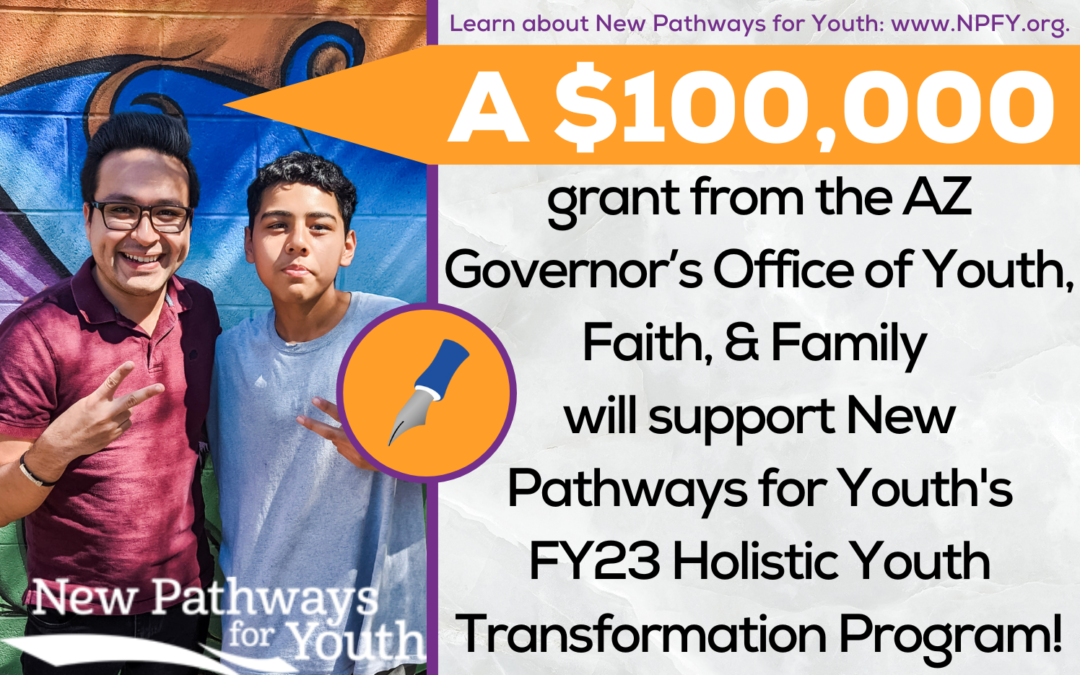Grantor Name: Arizona Governor’s Office of Youth, Faith, and Family – Juvenile Justice and Delinquency Prevention Title II Formula Grant Program
Program Name: Holistic Youth Transformation Program
Grant Amount: $100,000
Recipient Name: New Pathways for Youth
Overview of Use of Funds: Good Works Grant Writing is excited to congratulate our client, New Pathways for Youth, for being awarded a $100,000 Juvenile Justice & Delinquency Prevention (JJDP) Title II Formula Renewal Grant from the Arizona Governor’s Office of Youth, Faith, and Family! This government grant will help New Pathways for Youth to identify, enroll, and engage 28 first-time participants in their 2022-23 (FY23) Holistic Youth Transformation Program (380 total youth in FY23), providing more than 200 hours of mentoring and accompanying programming per youth, as well as 48 hours of individualized case management. New Pathways for Youth’s free, year-round Holistic Youth Transformation Program integrates six program elements: 1) One-on-One Mentoring; 2) Individualized Case Management & Goal Setting; 3) Personal Development/Life Skill Curricula; 4) Workforce Development/College & Career Planning; 5) Parent Workshops & Referrals; and 6) Mentor Coaching & Support.
Overview of Grant Objective/Impact: During their FY23 Holistic Youth Transformation Program, New Pathways for Youth will serve 380 youth (ages 13-21) who are experiencing extreme poverty, adversity, and disenfranchisement, and are consequently at high risk of new or repeated juvenile delinquency. Government grant funding from the JJDP Title II Formula Renewal Grant will help New Pathways for Youth’s FY23 Holistic Youth Transformation Program to achieve the following overarching goals: (1) To decrease risk factors associated with crime and delinquent behaviors (including delinquent peers/values, lack of interest in school, and lack of positive adult role model) by providing youth with the presence and involvement of a caring, supportive adult, matching them one-on-one with highly trained volunteer adult mentors for a minimum of two years; and (2) To increase protective factors associated with a decrease in juvenile delinquency/at-risk behaviors by providing youth with social and emotional learning opportunities in a cohort setting.

